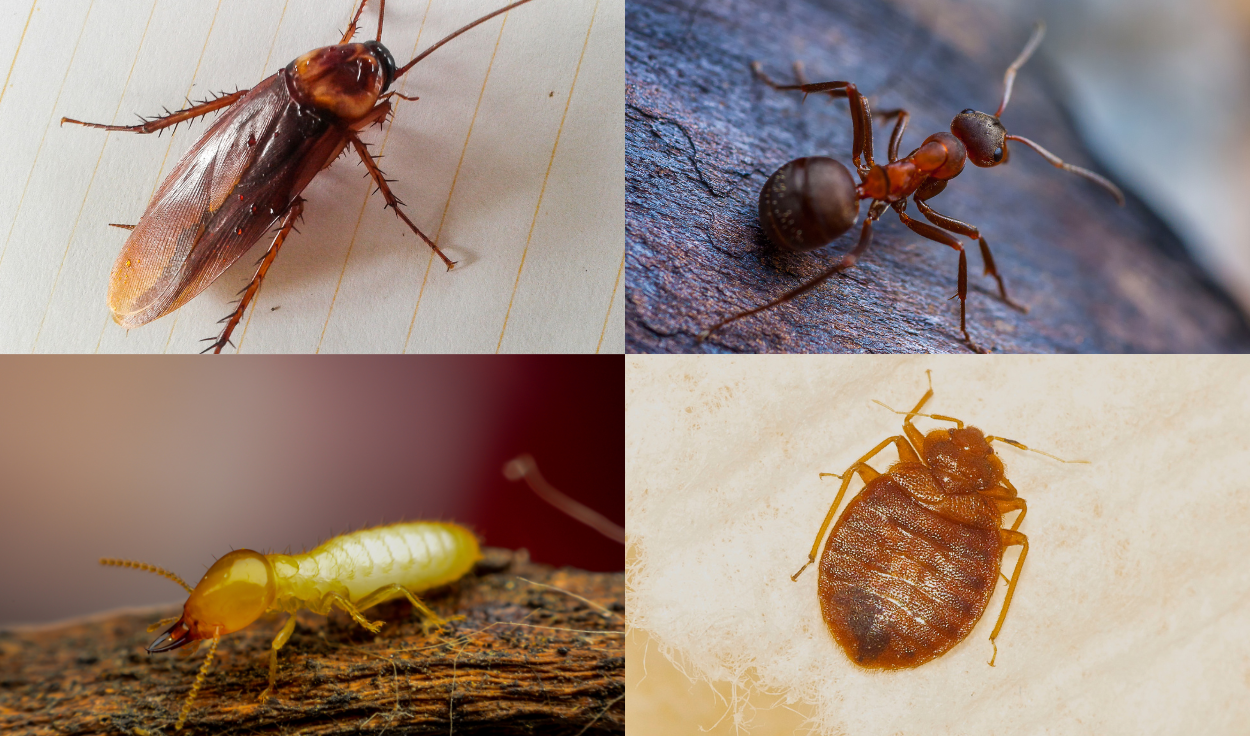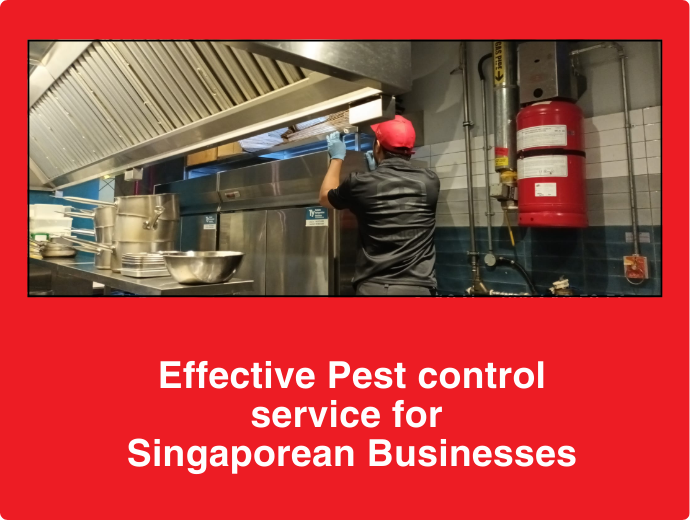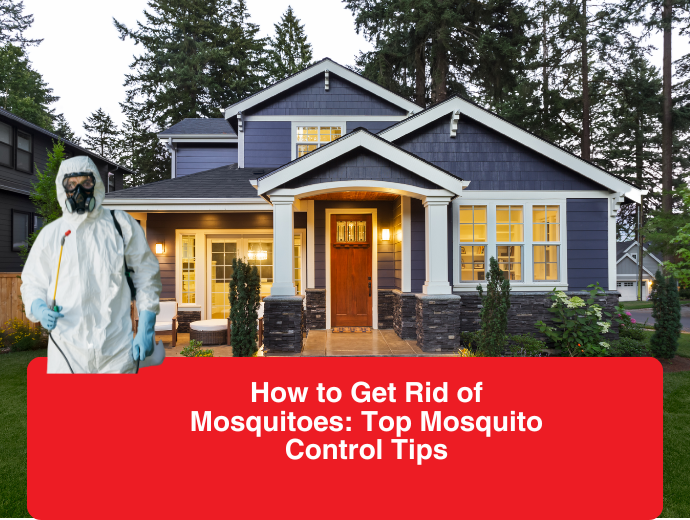Pest infestations can be a real nightmare for homeowners and businesses alike, and in Singapore, they are more common than you might think. While many people view pests as nothing more than a nuisance, the truth is that they can pose serious health and safety risks. From insect bites that cause allergic reactions to damage to your property, the consequences of a pest infestation can be far-reaching.
In this article, we'll explore some of the most common pests found in Singapore and the risks they pose to your health and property. We'll also provide some tips on how to prevent and control pest infestations so that you can protect yourself, your loved ones, and your property. So, let's get started!
Common pest infestations in Singapore
Singapore is known for its hot and humid climate, which makes it an ideal breeding ground for pests. Some of the most common pests found in Singapore include:
1. Cockroaches
Cockroaches are one of the most common pests found in Singapore. They are attracted to warm and humid environments, making them particularly prevalent in kitchens and bathrooms. Cockroaches can carry a variety of diseases, including salmonella and E. coli, which can cause food poisoning and other illnesses.
2. Ants
Ants are another common pest found in Singapore. They are attracted to sugary and greasy foods, which makes them particularly prevalent in kitchens. While ants are not known to carry diseases, they can contaminate food and cause damage to your property.
3. Termites
Termites are a particularly destructive pest that can cause significant damage to your property. They feed on wood and other materials containing cellulose, which can weaken the structure of your home or business. Termites are often not detected until significant damage has already been done.
4. Bed bugs
Bed bugs are small insects that feed on human blood. They can cause itchy and uncomfortable bites, and can also be difficult to get rid of once they infest your home or business. Bed bugs are often brought into homes and businesses through luggage or other infested items.
Health risks associated with pest infestations
Pests can pose serious health risks to humans. Some of the most common health risks associated with pest infestations include:
1. Allergic reactions
Many pests, including cockroaches and bed bugs, can cause allergic reactions in humans. These reactions can range from mild to severe and can include symptoms such as itching, swelling, and difficulty breathing.
2. Disease transmission
Pests such as mosquitoes and rodents can carry a variety of diseases, including malaria, dengue fever, and leptospirosis. These diseases can be transmitted to humans through bites or contact with contaminated surfaces.
3. Asthma and other respiratory problems
Pests such as cockroaches can trigger asthma and other respiratory problems in humans. This is because they produce allergens that can irritate the airways and cause breathing difficulties.
Property damage caused by pest infestations
In addition to the health risks associated with pest infestations, pests can also cause significant damage to your property. Some of the most common types of property damage caused by pests include:
1. Structural damage
Pests such as termites can cause significant structural damage to your home or business. This can weaken the structure of your building and make it unsafe.
2. Contamination
Pests can contaminate food and other items in your home or business. This can lead to the spread of disease and can also cause damage to your property.
3. Damage to personal belongings
Pests such as bed bugs can damage personal belongings such as clothing and bedding. This can be expensive to replace and can also be emotionally distressing.
Signs of a pest infestation in your home or business
It is important to be able to recognize the signs of a pest infestation in your home or business. Some of the most common signs of a pest infestation include:
1. Droppings
Pests such as rodents and cockroaches leave droppings behind. These can often be found in areas such as kitchens and bathrooms.
2. Damage to property
If you notice damage to your property, such as chewed wires or holes in your walls, this could be a sign of a pest infestation.
3. Unusual smells
Pests such as rodents can give off a strong odor. If you notice an unusual smell in your home or business, this could be a sign of a pest infestation.
Prevention measures for pest infestations
Prevention is key when it comes to pest infestations. Here are some tips on how to prevent pests from entering your home or business:
1. Keep your home or business clean
Pests are attracted to food and other sources of moisture. Keeping your home or business clean and free of clutter can help to reduce the risk of a pest infestation.
2. Seal up entry points
Pests can enter your home or business through even the smallest of cracks and gaps. Seal up any entry points to prevent pests from entering your property.
3. Store food properly
Pests are attracted to food, so it is important to store food properly. Keep food in sealed containers and clean up any spills or crumbs immediately.
DIY pest control methods
If you do have a pest infestation, there are some DIY pest control methods that you can try before calling in a professional. Here are some tips:
1. Use bait traps
Bait traps can be effective in controlling pests such as cockroaches and ants. These traps contain a poison that the pests will eat, which will then kill them.
2. Use natural remedies
Some natural remedies, such as peppermint oil and vinegar, can be effective in repelling pests. These remedies are safe and non-toxic, making them a good option for families with children and pets.
3. Keep your home or business clean
As mentioned earlier, keeping your home or business clean can help to prevent a pest infestation. It can also help to control an existing infestation.
Professional pest control services in Singapore
If you have a pest infestation that you are unable to control on your own, it may be time to call in a professional pest control service. These services have the knowledge and tools necessary to effectively control pests and prevent them from returning. Some of the most common pest control services in Singapore include:
1. Fumigation
Fumigation involves using a gas to kill pests. This is often used for severe infestations.
2. Chemical spraying
Chemical spraying involves applying pesticides to the affected area. This can be effective in controlling pests such as mosquitoes and ants.
3. Trapping and removal
Trapping and removal involves using traps to capture pests and then removing them from your property. This is often used for pests such as rodents.
Legal obligations for pest control
In Singapore, property owners have a legal obligation to control pests on their property. Failure to do so can result in fines and legal action. It is important to take pest control seriously and to take steps to prevent and control infestations.
Conclusion
Pest infestations can be a serious problem in Singapore, and it is important to take steps to prevent and control them. By recognizing the signs of a pest infestation, taking preventative measures, and knowing when to call in a professional pest control service, you can protect your health and property from the hidden dangers of pests.
What would Origin Do?
As the pest control experts, Origin would inspect the affected area and analyze the situation using specialized tools. Based on this analysis, a data-backed pest control plan is created that takes into account the type of pest, severity of infestation, and environmental factors. It would be based on the latest research and best practices in the industry.
Throughout the process, a clear communication with the property owner is maintained, providing regular updates on the status of the infestation and the progress of the pest control plan.
To find out more about Origin's services, visit our website or contact our team of experts for a consultation.
Check out these 5 tips for protecting your children from bug bites this summer.




